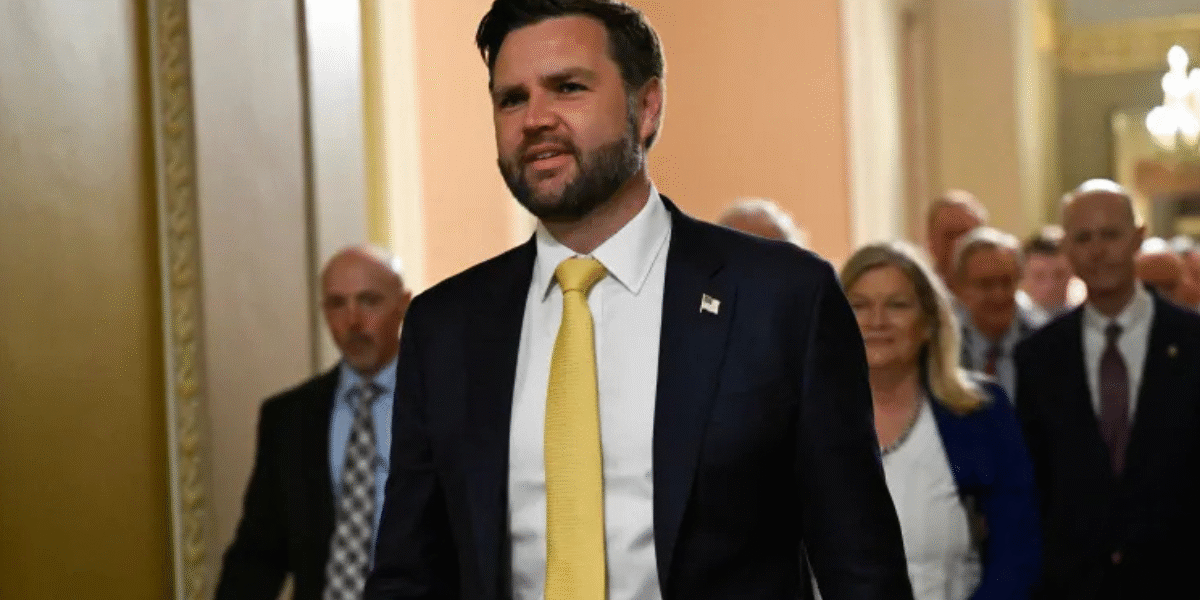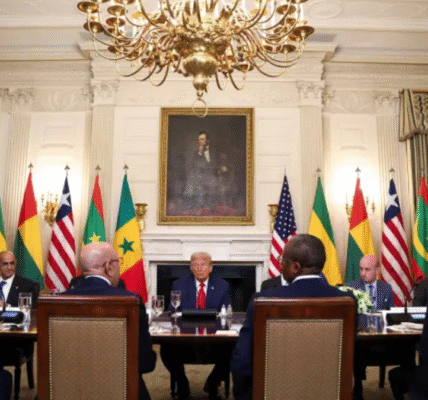Republicans in the Senate Advance Trump’s Divisive
Republicans in the Senate Advance Trump’s Divisive “Big, Beautiful Bill”
Washington, D.C. The Republican-controlled U.S. Senate has made a major advancement in the “Big Beautiful Bill,” the centerpiece piece of legislation proposed by former President Donald Trump. By a slim 51-49 vote on Saturday night, the legislation cleared its first procedural vote, paving the way for a contentious discussion and perhaps final passage in the days ahead.
Early worries about party unity were raised when two Republican senators split from the rest of the party to vote against the package. In spite of this, Republican leaders, aided by Vice President JD Vance, engaged in hours of secret talks before swaying crucial votes to advance the bill.
The ‘Big Beautiful Bill’: What is it?
Just before midnight on Friday, lawmakers unveiled the 940-page legislation officially titled the One Big Beautiful Bill Act.. The fine print is still being combed through by both lawmakers and pundits.
Reporting from Capitol Hill, Al Jazeera’s Mike Hanna highlights that the legislation outlines the following proposals:
An increase in military spending of $150 billion
Large-scale financing for the construction of border walls and mass deportations
Significant reductions to Medicare, the senior health insurance program

More about :Big, Beautiful Bill
Significant cuts to sustainable energy initiatives
Across party lines, these broad measures are raising concerns, especially given how swiftly the package is being passed.Senate Tensions Increase
Internal GOP disputes caused Saturday’s Senate session to go on for hours. At first, Republicans opposed the bill alongside Democrats, including Senators Ron Johnson, Rand Paul, and Thom Tillis.
But following late-night discussions, Senator Johnson changed his vote to “yes,” leaving Paul and Tillis as the only Republicans opposed. Before agreeing to support the plan, Senators Cynthia Lummis, Mike Lee, and Rick Scott pushed for even more spending cutbacks.
Chuck Schumer, the Democratic Senate Leader, criticized the procedure and charged that Republicans were attempting to pass the bill “in the dead of night.” He responded by demanding that the law be read aloud on the Senate floor, which could take up to fifteen hours.
“Schumer voiced concern over the bill’s potential financial repercussions down the line, issuing a warning:”
“Trillions of dollars in debt will be borne by future generations. It entails higher interest rates on credit cards, auto loans, and mortgages. What’s all this for? To eliminate Medicaid and give billionaires tax breaks?
Reaction to the Impact of Medicaid and Debt
The plan contains over $1 trillion in Medicaid cuts that analysts say are the biggest in American history. Millions of people would be impacted by the cuts, which might also result in the closure of dozens of rural hospitals. If the plan is signed into law, an estimated 8.6 million Americans may no longer have access to healthcare.
The measure may transfer money from the poorest 10% of Americans to the ultra-rich, according to nonpartisan economic experts, and add trillions to the $36.2 trillion national debt already in place.
The reaction from the public has been extremely negative. All major groups, including independents, retirees, low-income families, and even GOP-leaning suburban voters, are strongly opposed, according to recent polls.
Critics Are Joined by Elon Musk
Elon Musk, the billionaire businessman who recently spat with Trump about the plan, added to the drama on Saturday by reiterating his disapproval.
Musk posted on X (previously Twitter) that the most recent Senate draft bill is completely harmful and ridiculous. “It will seriously harm America’s strategic position and destroy millions of jobs.”
Later, he cautioned that the Republican Party would commit “political suicide” if the law were passed.
What Takes Place Next?
“Should the Senate give its official endorsement, the legislation will be sent back to the House of Representatives.” Republicans will have to fight much harder there since they “Has a narrow margin for error and can spare only a limited number of votes to pass it.”. The viability of the bill is still seriously threatened by internal party differences, particularly with regard to healthcare cuts and the nation’s growing debt.Trump is still committed to getting the bill signed into law by July 4 in time for America’s Independence Day celebrations, and he is keeping a careful eye on the developments from the Oval Office.




